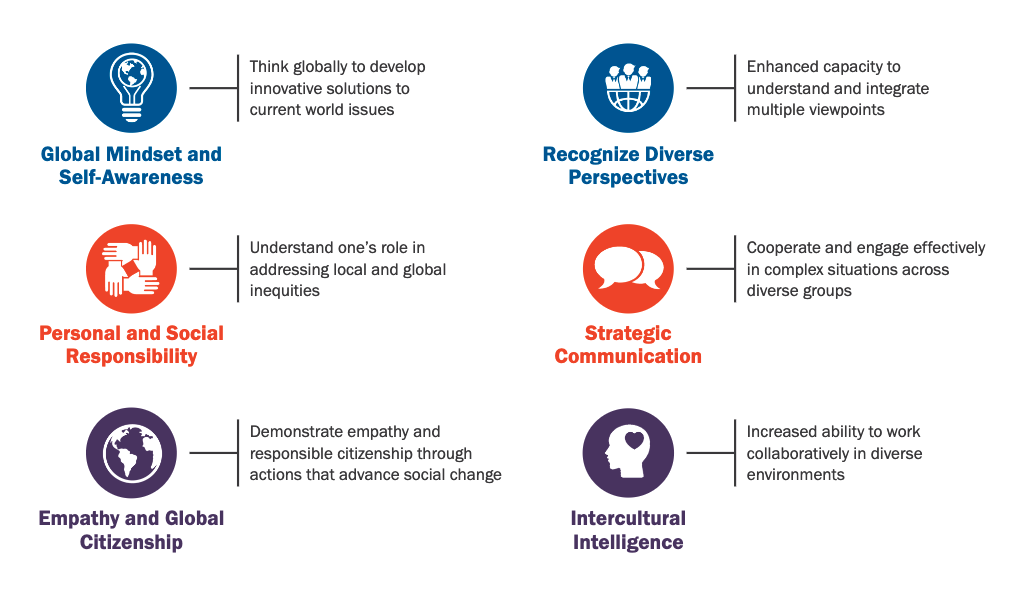Your program curriculum is designed to ensure graduates acquire the essential skills, knowledge, and attitudes appropriate and relevant to both the needs of students and employers.
Program Vocational Learning Outcomes
Program vocational learning outcomes describe what graduates of the program have demonstrated they can do with the knowledge and skills they have achieved during their studies. The outcomes are closely tied to the needs of the workplace. Through assessment (e.g., assignments and tests), students verify their ability to reliably perform these outcomes before graduating.
The program vocational learning outcomes for this program are
- Develop and maintain therapeutic relationships with children, youth and their families, respecting their unique life spaces, and applying the principles of relational practice to meet their needs.
- Assess the strengths, developmental and holistic needs of children, youth and their families, using methods grounded in theoretical frameworks, research and therapeutic practices, to develop care and intervention plans.
- Develop and implement care and intervention plans appropriate for the therapeutic milieu using evidence-informed practices and research to provide support for children, youth, and their families.
- Use equitable and inclusive approaches that are anti-colonial, anti-oppressive, anti-racist, and strength-based frameworks, as well as cultural humility, to create positive and sustainable solutions and respond to inequities and to systemic barriers experienced by children, youth and their families.
- Advocate for, and in solidarity with, children, youth, their families and communities through their participation in the development and implementation of care and intervention plans that uphold their rights.
- Employ communication, collaboration and relational skills with the inter-professional team and with community partners to ensure and enhance the professionalism of practice.
- Engage in self-inquiry, relational inquiry and critical reflection to develop strategies for learning and the practice of self-care, as a practitioner.
- Use professional development resources and supervision to increase professional capacity, learning and leadership skills.
- Adhere to relevant legislation and Child and Youth Care standards of practice, competencies, and codes of ethics as a practitioner.
- Practice in a variety of contexts and settings, respecting needs for developmental growth, safety, wellbeing and agency, while addressing the varying age and developmental ranges of children, youth, and their families.
- Employ crisis prevention and intervention techniques, and harm-reduction principles, with children, youth and their families in the provision of care, to ensure their safety, resolution of crises, and reparation of relationships.
- Develop the capacity to work with children, youth and families who identify with Indigenous, Black, and racialized communities, as well as people in 2SLGBTQ+and disabled communities, by identifying systemic inequities and barriers, integrating practices such as trauma-informed care, and respecting their inherent rights to self-determine.
Essential Employability Skills Outcomes
Essential Employable Skills (EES) are skills that, regardless of a student’s program or discipline, are critical for success in the workplace, in day-to-day living, and for lifelong learning. Graduates will reliably demonstrate abilities in six skill categories:
Global Citizenship and Equity Learning Outcomes
There are six Global Citizenship and Equity (GCE) learning outcomes integrated into Diploma and Advanced Diploma programs as a component of Centennial’s Signature Learning Experience (SLE). The SLE reflects the College’s promise to provide students with a distinctive and inclusive educational experience that builds on a foundation of global citizenship, equity, and social justice. Certificate and Graduate Certificates also include at least two GCE learning outcomes. The GCE learning outcomes are:
- Identify one’s role and responsibilities as a global citizen in personal and professional life.
- Identify beliefs, values and behaviours that form individual and community identities and the basis for respectful relationships.
- Analyze issues of equity at the personal, professional, and global level.
- Analyze the use of the world’s resources to achieve sustainability and equitable distribution at the personal, professional, and global level.
- Identify and challenge unjust practices in local and global systems.
- Support personal and social responsibility initiatives at the local, national, and global level.
Global Skills Portfolio
As a component of the SLE, Diploma and Advanced Diploma program students will complete the Global Skills Portfolio. Building the Global Skills Portfolio is a process of documenting your GCE learning. Each item selected for inclusion in the portfolio demonstrates growth and understanding of Global Citizenship and Equity within your program of study.

Students are encouraged to develop their Global Skills Portfolio beginning in their first semester. You will add artifacts from coursework and accompanying reflections as well as artifacts arising from co-curricular activities, volunteering, etc. to your portfolio as you progress through the program. You are encouraged to develop an online professional portfolio presence through LinkedIn and/or other personal websites/blogs.
Curriculum Frameworks
The CYC professors work collaboratively in preparing curriculum that allows you to utilize prior experiences and scaffold learning as you complete the program. Textbooks are carefully chosen and when possible are used for several courses throughout the six semesters. All of your professors have extensive experience working with children, youth and their families in many different environments and they will share those experiences while enriching the content they are teaching. All CYC courses must have a minimum “C” (60%) grade to be successful in the courses. Review the model route to review courses that have co-requisites and pre-requisites. All year one courses must be completed to be eligible for second year field, and all second year courses must be completed to be eligible for third year field.

